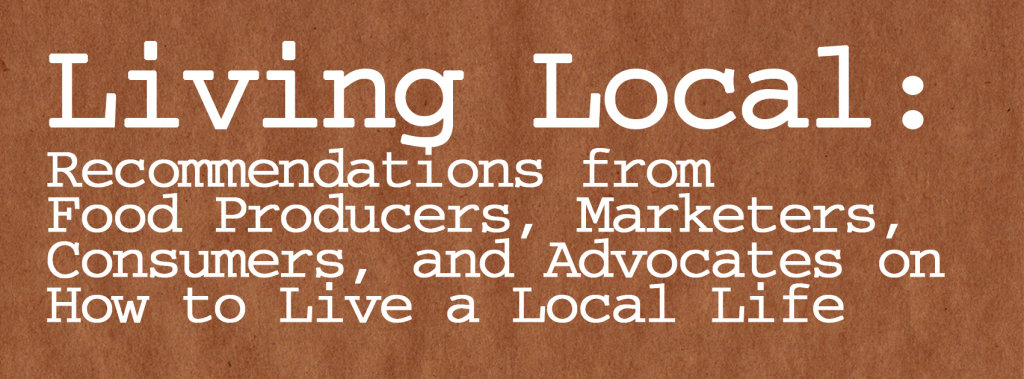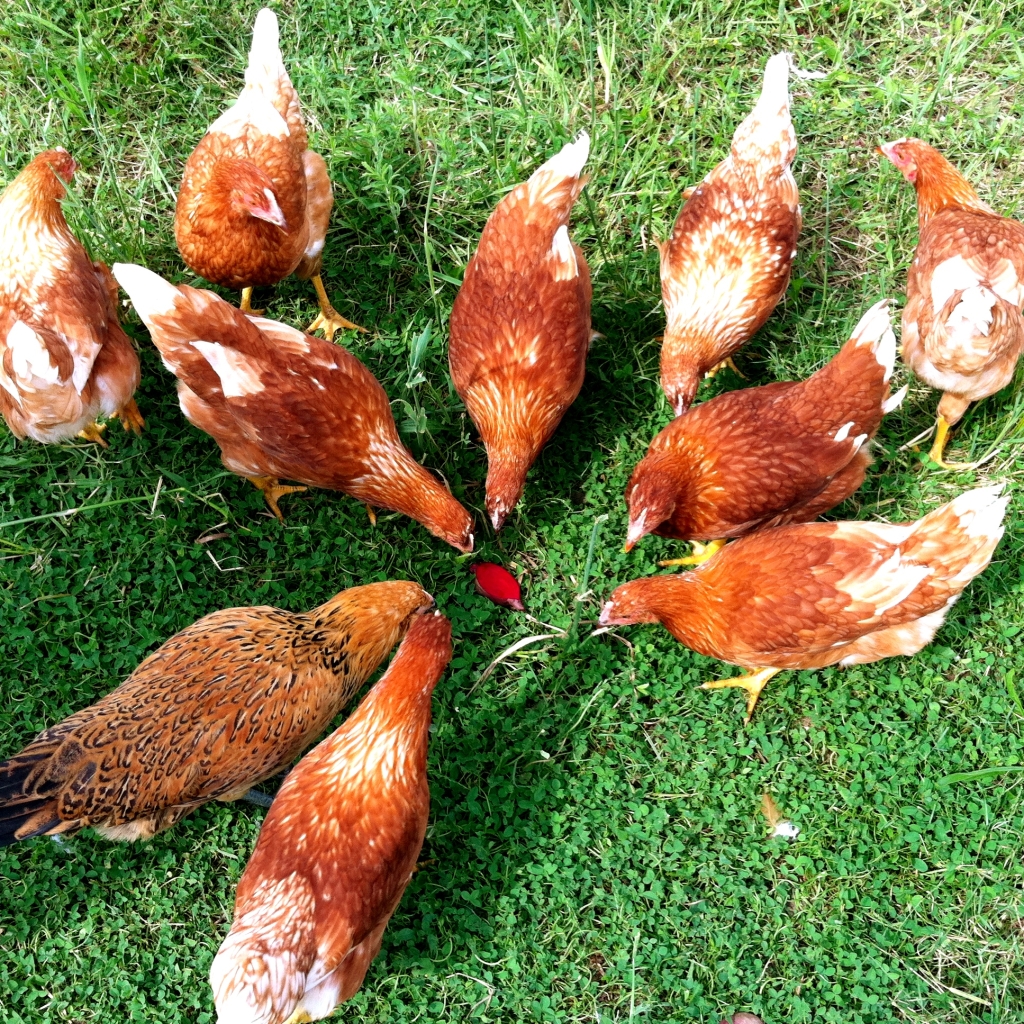8 Tips on How You Can Live Locally

Wondering what steps you can take to become more aligned with your local community and environment? Erica Evans, Beginning Farmer Program Coordinator at NOFA-NJ, shares with us 8 ways you can live locally.
1. If your municipality allows, raise your own chickens. In my own hometown, I participated in many town council meetings advocating for residents raising hens.
2. If you have space available, grow a garden, it can be as small or as large as you can handle. It can be in the ground, in raised beds, or pots. 1 or 2 tomato plants on your back patio is better than no tomatoes. Even a windowsill herb garden is better than nothing. Community gardens, roof gardens, porches, patios, windowsills, front and back yards are all great places to start your own garden!
3. Join a CSA! There are vegetable, meat, and fruit CSAs available. In my opinion, for lots of people this is a great option, especially those who don’t have time or space for their own garden. It’s fun, social, educational, and more! If a full-share is too much for you (if you have a small family or are single), choose a half-share option if available, or split a share with a friend, neighbor, or co-worker!
4. Eat with the seasons. Learn what’s in season. Knowing what’s in season means knowing if it is local. Some people like to organize their recipes by season. Having a reverse approach to recipes where you see what looks good at the whole animal, eat the organ meats (super nutritious!), and my favorite part: cooking fats for free from melting down fat into lard or saving the fat from a roast duck!
6. Preserve produce while it’s in peak season by freezing, drying, canning, or fermenting. Get friends, neighbors, or family together and make an event out of this! It’s always a memorable experience – especially for the kids.
7. A way I like to taste the seasons is by foraging for wild edibles. Each season brings something new you can forage for. However, do not do this unless you are 100% sure of what you are foraging, and make sure it is in an area free from chemicals (I’d be wary of those tasty looking dandelions that grow in every suburban yard where chemical fertilizers are used regularly) and not near traffic. Also, you must be sure not to deplete the entire stand of plants.
8. The most important concept to keep in mind (for me) and what I used to tell members of North Jersey Locavores is that a little bit is better than nothing. Maybe you can’t buy ALL your food from a local farmer or you can’t grow all of it yourself, but even just a little bit is better than not at all.

